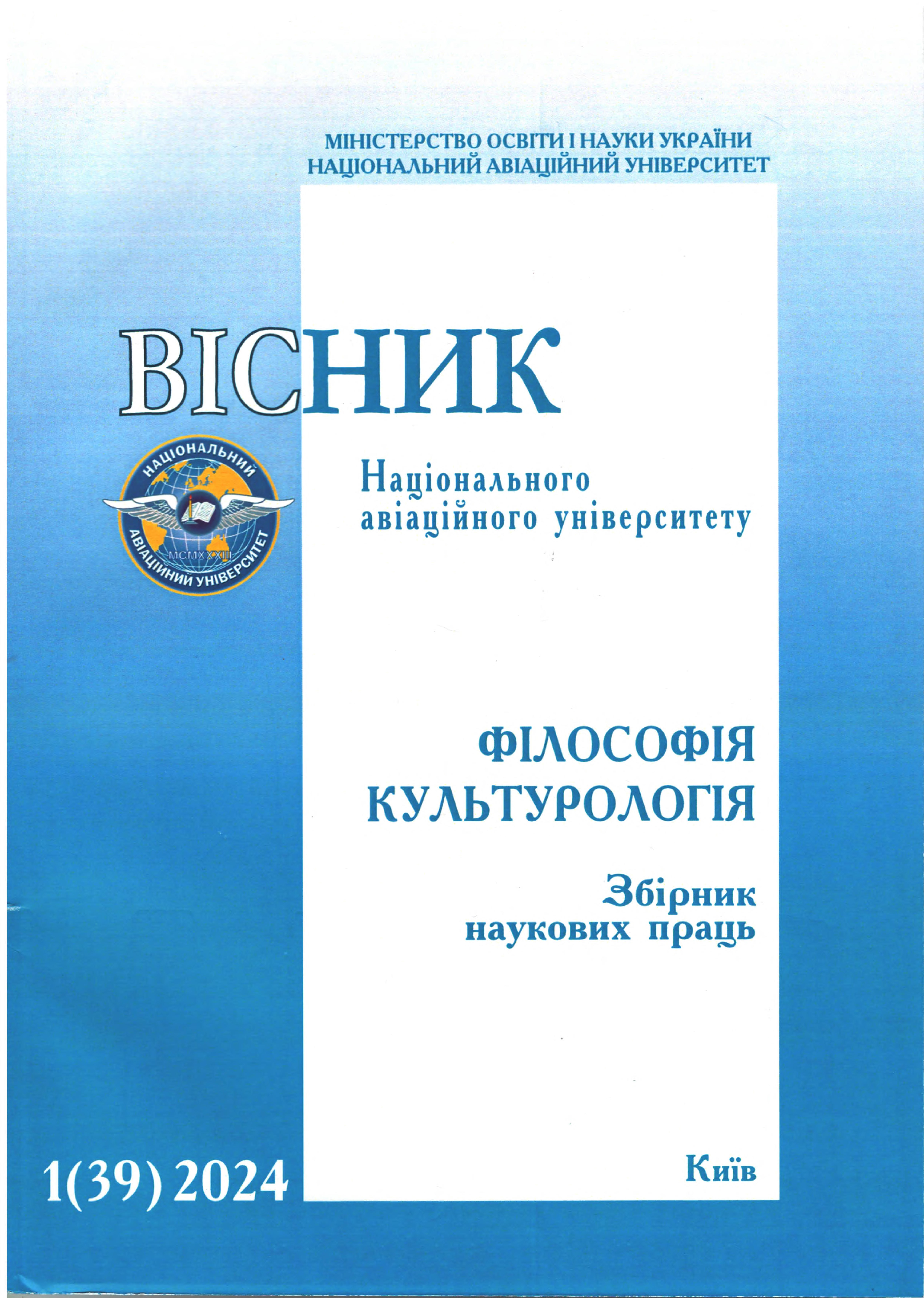THE INFLUENCE OF SOCIAL AND INDIVIDUAL FACTORS ON SCIENTIFIC KNOWLEDGE: A PHILOSOPHICAL ASPECT
DOI:
https://doi.org/10.18372/2412-2157.39.18461Keywords:
scientific cognition, scientific communications, collective subject of cognition, information and communication technologies, subject of cognition, virtual experiment.Abstract
Introduction. Modern science has developed a new paradigm of scientific knowledge, which takes into account the influence of social and individual factors on the result of cognitive activity. The aim of the article is to explore how individual and social factors impact the outcomes of scientific inquiry. Research methods. The study employs system analysis, alongside comprehensive and comparative methods. The method of system analysis and a comprehensive approach were planned to be used in the study of the ratio of scientific knowledge of different eras, in the study of a complex system of various relationships between an individual scientist and a scientific community, etc. Research results. Modern science, which is defined as post-non-classical, incorporates both the objective value and the subjective characteristics of knowledge, including its relation to worldview moral orientations, social stereotypes, and the personal knowledge, experience, and goals of the individual scientist. The active approach is not new in the history of the development of epistemology. In its general meaning, it can be considered to some extent as an opposition to the theory of "mirror reflection", which at one time was put forward and developed by representatives of New Age empiricism. An active approach cannot be fully implemented without taking into account social and individual factors. Discussion. The diversification of scientific inquiry to include systems such as artificial intelligence, biotechnological systems, and socio-technical systems underscores that knowledge about these entities is intrinsically linked to the social and individual attributes of the subject of knowledge. The subject of scientific knowledge can be both an individual and a scientific community. Therefore, the results of the community's cognitive activity cannot be reduced to a simple sum of the individual work of individual scientists, since a well-organized collective is a carrier of knowledge, the volume of which exceeds the capabilities of an individual scientist. Conclusions. The contemporary paradigm of scientific knowledge acknowledges the influence of not only emergent value orientations shaped by information technology but also the personal attributes of scientists on research outcomes.
References
Fleck L. Denkstile und Tatsachen. Gesammelte Schriften und Zeugnisse. Frankfurt am Main : Suhrkamp Verlag AG. 2011.
McLuhan M. The Gutenberg Galaxy: The Making of Typographic Man. Canadian National Institute for the Blind, 2001.
Polanyi М. Personal Knowledge: Towards a Post-critical Philosophy, 2015, Р. 464.
Антипова О. П. Візуальна комунікація як атрибут цифрової культури. Вісник Національного авіаційного університету. 2023. Вип. 2 (38). С. 66–70. (Серія: «Філософія. Культурологія»).
Дротянко Л. Г. Філософська рецепція трансформації мови в медіакультурі ХХІ століття. Вісник Національного авіаційного університету. 2023. Вип. 2 (38). С. 5–10. (Серія: «Філософія. Культурологія»).
Мокляк Л. І. Спілкування як морально-етичне підґрунтя комунікативних процесів сучасності. Вісник Національного авіаційного університету. 2023. Вип. 2 (38). С. 85–89. (Серія: «Філософія. Культурологія»).
Найдьонов М. І. Формування системи рефлексивного управління в організаціях. К.: Міленіум, 2008. 484 с.
Онопрієнко В. І., Онопрієнко М. В. Історія, філософія, соціологія науки і технологій: К.: ДП Інформ.-аналіт.агенство, 2014. 447 с.
Онопрієнко В. І. Система освіти потреба в інформаційних технологіях. Вісник Національного авіаційного університету. 2014. Вип. 1 (19). С. 24–27. (Серія: «Філософія. Культурологія»).
Плющ О. Методологія пізнання у постінформаційних суспільствах. Вчені записки Університету «КРОК» № 1 (69), 2023. С.188–196.
Сідоркіна О. М. Морально-етичні виміри соціальних комунікацій (мовний аспект). Вісник Національного авіаційного університету. 2023. Вип. 2 (38). С. 37–42. (Серія: «Філософія. Культурологія»).
Скиба І. П. Трансформація мови комунікації під впливом процесів інформатизації суспільства. Вісник Національного авіаційного університету. 2023. Вип. 2 (38). С. 94–100. (Серія: «Філософія. Культурологія»).
Скиба О. П. Стиль наукового мислення в соціально-психологічному і соціологічному аспектах. Вісник Національного авіаційного університету. 2009. Вип. 1 (9). С. 91–94. (Серія: «Філософія. Культурологія»).
Ченбай Н. А. Мовний аспект суспільного дискурсу в інформаційну еру. Вісник Національного авіаційного університету. 2023. Вип. 2 (38). С. 105–108. (Серія: «Філософія. Культурологія»).

